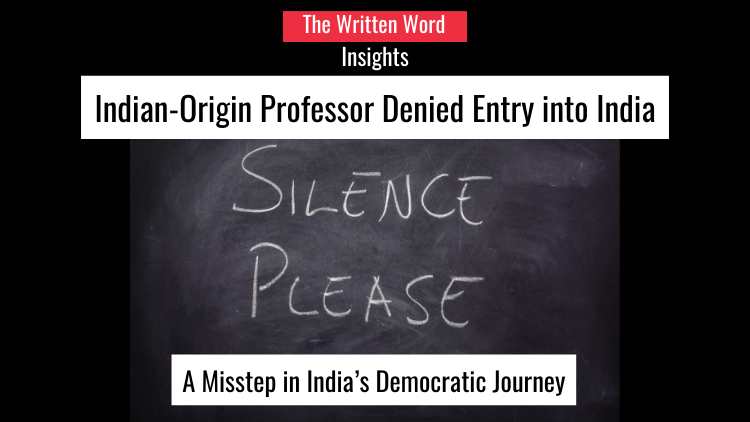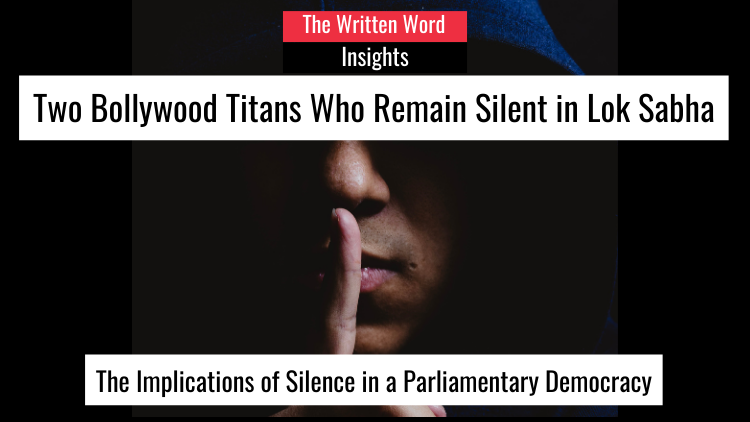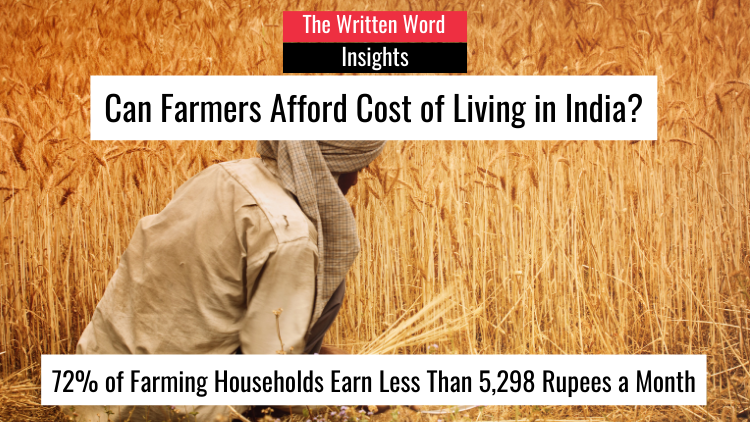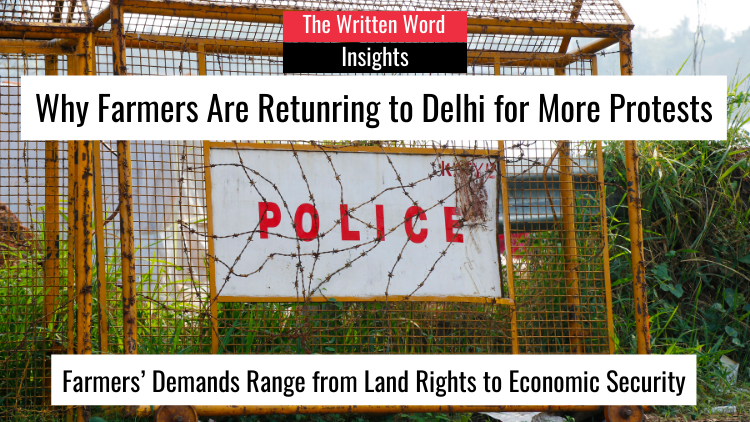NEWS BRIEFING February 24
A concerning surge in hate speech incidents took place across India in 2023, with a total of 668 events specifically targeting Muslims, according to a report. A striking 75% of these incidents occurred in states and territories under the Bharatiya Janata Party (BJP) governance, including the National Capital Territory of Delhi, where the central government, led by the BJP, holds jurisdiction over police and public order.
An Overseas Citizen of India (OCI) and a professor at the University of Westminster in the U.K., Nitasha Kaul, has been denied entry into India to speak at a conference in Bengaluru. The event questions the boundaries of state power and the rights of individuals in a global context and the required balance between national security measures and the freedom of academic expression.
The separation between administration and politics is crucial for a democracy, as it prevents the misuse of governmental power for political gains and ensures that public services are delivered without discrimination. When government agencies are manipulated to undermine the opposition or quell dissent, the shortcomings of the bureaucracy frequently go unnoticed.
Senior Advocate Mihir Desai voices concerns over the Supreme Court’s hesitation to acknowledge the misuse of laws such as the Unlawful Activities (Prevention) Act (UAPA) and the Prevention of Money Laundering Act (PMLA), focusing on the Supreme Court’s recent trends in cases involving civil liberties and political rights.
An analysis of Election Commission records, financial statements and surveys conducted by central agencies reveals a discernible pattern in political donations received by the Bharatiya Janata Party (BJP) over a five-year period, according to the media outlets The News Minute and Newslaundry. The analysis raises questions about the regulatory environment and the enforcement of laws governing political donations and corporate governance, prompting opposition parties to call for an inquiry.
The Kerala Bharatiya Janata Party (BJP) found itself in a rather awkward position. At a recent political rally, charged with fervor, supporters gathered with anticipation, the music started. But instead of a rousing anthem that rallies the crowd to their cause, the speakers blare out a song urging people to “destroy the ‘corrupt’ Union government.” The very Union government their party leads at the centre.
India’s agricultural narrative is marked by contradictions between government claims of self-sufficiency and the harsh realities of hunger and farmer distress. The government’s assertion of surplus and self-sufficiency should be examined against the backdrop of India being home to 270 million hungry people, making it the country with the highest number of undernourished individuals globally, says a report by the media outlet DownToEarth.
The Supreme Court of India has corrected a deliberate manipulation of the democratic process in the Chandigarh Municipal Corporation mayoral election. By declaring the Aam Aadmi Party (AAP) councillor Kuldeep Kumar as the rightful Mayor, the apex court protected the sanctity of each vote and the imperative of upholding electoral integrity, amid a clash between the principles of democratic fairness and the machinations aimed at subverting them.
The situation in Chhattisgarh, where the Union and state governments have approved the second phase of mining operations in the Hasdeo Arand forest, highlights a significant conflict between economic development and environmental conservation. This decision has led to the cutting of over 15,000 trees, adding to the 81,000 trees felled since 2012 for coal mining purposes, according to the media outlet Article 14.
A new study, looking at how jobs and the economy have grown in India from 1983 to 2021, shows that even though the economy has been growing, this hasn’t led to enough new jobs for everyone. This means that the recent growth in India’s economy hasn’t created the kind of work that a lot of people can do, leaving many without jobs despite the economy getting bigger.
Following the Supreme Court’s declaration of the electoral bond scheme as unconstitutional, the central government has instituted a new mechanism for the comprehensive collection of data on all political donations, according to a media report. This system will enable the central government to gain insights into the financial landscapes of opposition parties while maintaining the confidentiality of this data from the public eye.
During the ongoing farmers’ protests, three farmers have lost their vision due to the Haryana police’s use of pellet guns, according to a media report. Given that pellet guns are considered less lethal than firearms yet can cause internal organ damage and blindness, is it permissible for law enforcement officials to employ such weapons?
A nationwide survey paints a picture of deep economic anxiety and dissatisfaction with the government’s handling of employment, inflation and economic policies, suggesting a perceived alignment with the interests of big business over the broader populace.
The rationale behind India’s anti-defection law, which deals with an elected member giving up the membership of the political party on whose ticket they were elected to the legislature, is rooted in the desire to enhance political stability and uphold the sanctity of the electoral mandate. However, its impact on the ground is minimal, as illustrated by the recent example of Bihar Chief Minister Nitish Kumar abandoning his alliance partners, the Rashtriya Janata Dal and the Congress, to form an alliance with the Bharatiya Janata Party.
Bollywood actors Sunny Deol and Shatrughan Sinha, renowned for their roles as tireless heroes on the silver screen, have, paradoxically, chosen a path of silence in the political arena. Perhaps they consider the responsibilities associated with being a Member of Parliament (MP) in the Lok Sabha and the articulation of concerns and viewpoints in this forum to be optional.
India’s national average monthly farm income is 5,298 rupees and the average monthly total income is 10,695 rupees, according to data from the latest National Sample Survey. It’s scant, indeed, but more troubling is that this average fails to reflect the circumstances of the majority of farmers, as shown by The India Forum amid an ongoing farmers’ protest around Delhi.
In the drought-prone district of Sangli in Maharashtra, a quiet revolution is unfolding—one that has transformed the lives of women grappling with limited mobility. In the episode, “A Ticket to Ride” for Newsreel Asia’s Radio Local podcast, a community radio Yeralavani sheds light on the inspiring stories of Savita Mote and Sakhubai Suryavanshi, illustrating how innovative solutions are breaking down barriers for rural women.
A significant resurgence of agricultural dissent is anticipated in Delhi. Preparations are underway for thousands of farmers, along with a convoy of 2,000 tractors, to converge on the borders of Delhi. It’s a part of a planned protest, with farmers preparing to make their way to the national capital. The farmers have set an ultimatum for the government until Feb. 12.
A journalist and his colleagues were ambushed in Pune on Feb. 9 by members of two political parties, according to Newslaundry, which quoted the journalist as saying that he felt the attack was an attempt on his life.
The Forest Conservation (Amendment) Act, 2023, or FCAA, which faces criticism for favouring corporate interests over forest communities, especially threatens the northeastern states of India. This is due to a provision allowing the diversion of forest land for certain projects without forest clearance under the Forest Conservation Act, 1980 (FCA).
A report by the human rights group Amnesty International has documented the alleged targeted demolition of at least 128 properties, including homes, businesses and places of worship, largely belonging to Muslims in the Bharatiya Janata Party (BJP)-ruled states and the Aam Aadmi Party (AAP)-governed state of Delhi in a span of 15 days between April and June 2022.
The Uttarakhand government has introduced a bill mandating residents, whether they are from the state or not, to register their live-in relationships with district authorities. This move starkly contravenes the essential respect for individual freedoms, contradicts legal precedents established by the Supreme Court of India, challenges societal norms and raises questions about governance practices.
Thousands of protesters in Ladakh’s Leh and Kargil districts participated in a shutdown on Feb. 3, rallying against the constitutional changes following the abrogation of Article 370 in 2019. The protesters are seeking the restoration of statehood, tribal status for Ladakh and a parliamentary seat for each of the Leh and Kargil districts.
The central government’s decision to fence the India-Myanmar border, purportedly to bolster national security by terminating the Free Movement Regime (FMR), may not necessarily achieve its intended security objectives. Instead, it could detrimentally impact the welfare of communities living along the border and create more security challenges, as indicated by experts and the affected populations themselves.
The Central Bureau of Investigation (CBI) conducted raids on the premises of Harsh Mander, a human rights activist and former Indian Administrative Service officer, and the Centre for Equity Studies (CES), an organisation he is associated with, on Feb. 2. This action has led to criticism, with many viewing it as a politically motivated attempt to silence one of the government’s most articulate critics.
In a world yearning for journalism that is fair, precise and diverse, the role of on-the-ground community radio journalists who closely understand their people and challenges is indispensable. Every day, these extraordinary local reporters engage with their neighbours, friends and other residents recording issues faced by small-town India.
India’s “interim” Union Budget for 2024-25, presented on Feb. 1, when analysed for its impact on the average citizen, particularly those from economically disadvantaged backgrounds, uncovers several problematic aspects in key sectors such as education and health.
In the next 10 years, we’re about to see something huge happen: someone will become the world’s first trillionaire. A recent report, highlighted by CNBC, tells us this is not just a big deal for the rich person but a moment that makes us all think hard about what it means when one person has that much money.





























A new report indicates a significant shift in India’s wealth distribution, with a forecast showing an unprecedented increase in the number of ultra-rich individuals over the next five years. This shift, when examined through a lens that scrutinises societal and economic dynamics, reveals a deeper narrative about disparity and the allocation of resources.